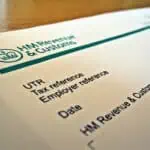Do I need a business bank account?
Reading Time:
Many millions of us work for ourselves, whether it is as our primary job or a side hustle, as freelancers, contract workers, or in other ways as part of the “gig” economy. Although most people can use their regular bank account, there are times when you need to separate your personal and business finances.
This article talks about the importance of having a business bank account. If you want to learn more, continue reading.
What is a business bank account?
As the name suggests, a business bank account is a type of bank account intended to be reserved for business purposes. Most banks do provide business bank account options, but it will be more costly to maintain than its equivalent in most cases. Still, that cost will go towards various concessions tailored to the demands of your business activity with access to financial products such as business loans, credit cards and overdrafts, as well as stronger protections against fraud.
One of the core strengths of a business bank account tends to be convenient invoicing and accounting.
All good banking services now support online operations. Choosing a business bank account can make your day-to-day financial management significantly more straightforward. Partnering with a good accounting firm (as is often advisable) that works with established banking app services like Mettle, Starling, or Monzo could further streamline your business integrations.
Importance of having a business bank account
Getting a business off the ground is hectic enough and opening a business bank account may be pushed down your list of priorities. You may already have a personal account (or accounts) open, after all, and the fundamental concept of storing money is the same. What is there to gain?
When thinking about whether to open a bank account for the sole purpose of running a business, your decision will ultimately depend on whether you are working as a sole trader or setting up a limited company. Though it is important, it is not a legal obligation to do so.
But why is this so important? As your business starts to flourish and expand, it will become essential to separate your business
finances from the personal. Suppose your personal costs get mixed up with your business expenditure because you use one bank account for both. In that case, it will make it impossible to know how your venture is performing, manage any budgets, but it also has the potential to create complications when filing your tax return to HMRC.
This piece clearly outlines why it is a smart move to consider having a business bank account.
- When does a business bank account need to be set up?
- When should I open a business bank account for my limited company?
- When is the right time to open a business bank account?
- Conclusion

When does a business bank account need to be set up?
The two most popular UK business approaches in the UK are to operate as a sole trader or form a limited company. If you take the first route, you are technically allowed to use your usual bank account, but your company needs a different account that you do not use for your transactions if you take the second route.
While many business current accounts on the market charge for their services, others also waive the charge as long as you commit to paying in a certain amount regularly every month. We suggest you shop around to find the best options (Account manager, budgeting tools) and deals that will work for you – do not just assume that your existing bank provider will offer the best solutions for business use.
Do I need a business account as a sole trader?
As a UK sole trader, opening a business bank account is not essential. But, from a legal perspective, you can use your existing bank account for all your transactions (business or otherwise) or open a second bank account that will allow you to separate your business activities. In addition, some banks offer specific business bank accounts for sole traders, offering generally lower fees than those offered to limited companies.
Several reasons why creating a separate business account is a good idea.
1. Your private bank account
If you start to increase transactions going through your account, your bank will most likely tell you to close it and open a business account.
2. Sending out the right business message
It appears that having a dedicated bank account for your business projects a more professional image and message, particularly if you are looking to build on existing client relationships and secure new business opportunities in the future.
3. Keeping HMRC happy
Having your finances in order will make submitting your annual tax return to HMRC much more manageable (or via your accountant). Your final taxable profit will be determined once you have offset your allowable expenses (travel, stock, raw materials). If you use one bank account for personal and business expenses, it can be difficult to track costs and claim deductions. It may also cause a delay in filing your tax return.
4. Having good credit
If you need to apply for a business loan, then having an account in your business name will undoubtedly make that process more straightforward. Demonstrating you have a good credit history will go down well with banks and make it easier to secure finance.
The best online business bank account
You can get started with online banks that specialise in small business accounts, which are easier to set up and less expensive than their brick-and-mortar counterparts. Banks like this one allow you to open an account in just a few minutes and integrate seamlessly with accounting software.
The bank accounts let you attach photo receipts of your transactions should you need to prove to HMRC that you spent money. You can also set up linked accounts for tax so you can put money away for your tax bill
Top digital business bank accounts
| Fees | Accounting software links? (1) | FSCS Protection? |
|---|---|---|
| – 0.3% of cash deposited (rising to 0.7% in Mar 22), min £3 (Post Office only) – 50p per cash withdrawal at Post Office; ATM is free | Quickbooks, Xero and FreeAgent, or it has its own bookkeeping Toolkit for £7/mth | £85,000 |
| – £1 to pay in cash (Paypoint) | None (unless you opt for the £5/mth version of the account) | £85,000 |
| – 20p per bank transfer – £1 per cash withdrawal – £1 (Post Office) or 3% of deposited cash (Paypoint) | £85,000 (2) |
When should I open a business bank account for my limited company?
It is the same for your limited company for sole traders, in that you don’t need to have a business bank account for it. However, when you set up your limited company, it becomes a separate legal entity meaning that the money you make from your business now must be kept separate from your own money and earnings. So, any debts, losses, or legal claims from the company aren’t going to hurt the owners or shareholders. Using a business bank account also means that it won’t affect your money if someone tries to defraud your trading persona.
It is called a limited company because it provides limited liability for the people involved. The company itself is essentially treated as a person at a legal level. If a company gets too far into debt, creditors can seize the company’s assets — including money in the company account — without needing to pursue action against the owner (or owners).
Please be aware that banks will have specific requirements when opening a new business account (credit checks, proof of ID, incorporation documents), so read the fine print before signing. A business account also allows you to borrow money, get a business credit card, and manage customer payments.
As a limited company, you have the potential to attract larger business clients who may only be interested in working with a limited company. In addition, investing in a dedicated bank account shows that you are a genuine business and looking to make it a long-term success.
There are strict rules on taking money out of your limited company, and you cannot treat it as a personal account and withdraw sums of money. You can pay yourself a salary and issue dividend payments if profitable. You can also claim back any personal expenses.
When is the right time to open a business bank account?
Is your business growing fast but not yet opened a business account? To help you decide, if you answer ‘YES‘ to any of the below, then this could be the right time to make that leap:
- Are you thinking of incorporating your business as a limited company?
- Is it becoming harder to separate your expenses from your business income?
- Need accounting software or banking app integrations?
- Are you seeing an uptick in the number of transactions you are processing?
- Considering getting a business credit card?
- Want to start taking customer payments by card?
- Need to take out a business loan or an overdraft?
Conclusion
A business bank account is a necessity if you want to run a successful long-term business. You’ll need one by law if you’re running a limited company. If you continue to use your bank account while working as a sole proprietor, your clients and customers will not take you seriously. It may be tempting to begin your new company without thinking about the need for a business bank account; hopefully, this article has helped emphasise the importance of doing so when appropriate.
Fusion Accountants in London are very proud to help 100s of Sole Traders and Limited Companies with their accounting work in London. Our financial experts can assist you with everything from annual accounts, Corporation Tax returns and offsetting expenses to declaring dividends. We do everything you would expect an accountant to do for you and your business.
We work with several banking apps that easily integrate with Xero, QuickBooks and Freeagent so you can manage your day-to-day business processes from sending, paying and tracking your invoices to ring-fence cash reserves for expenses, wages and bills.






